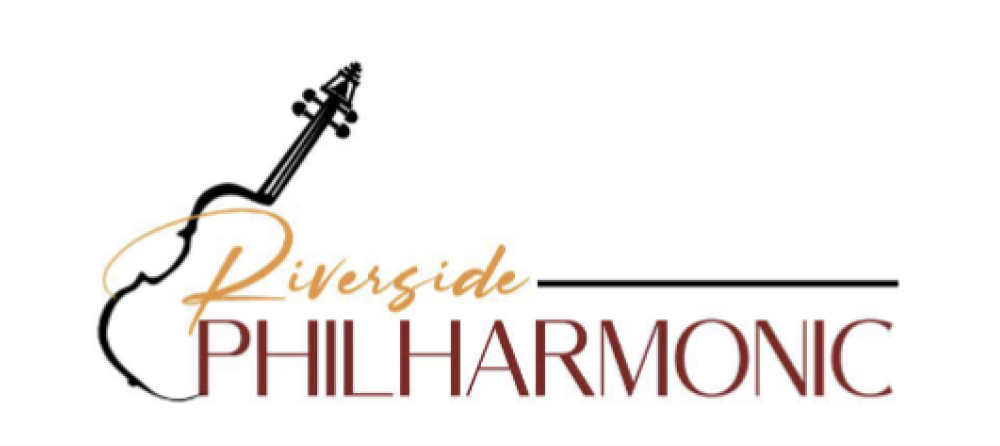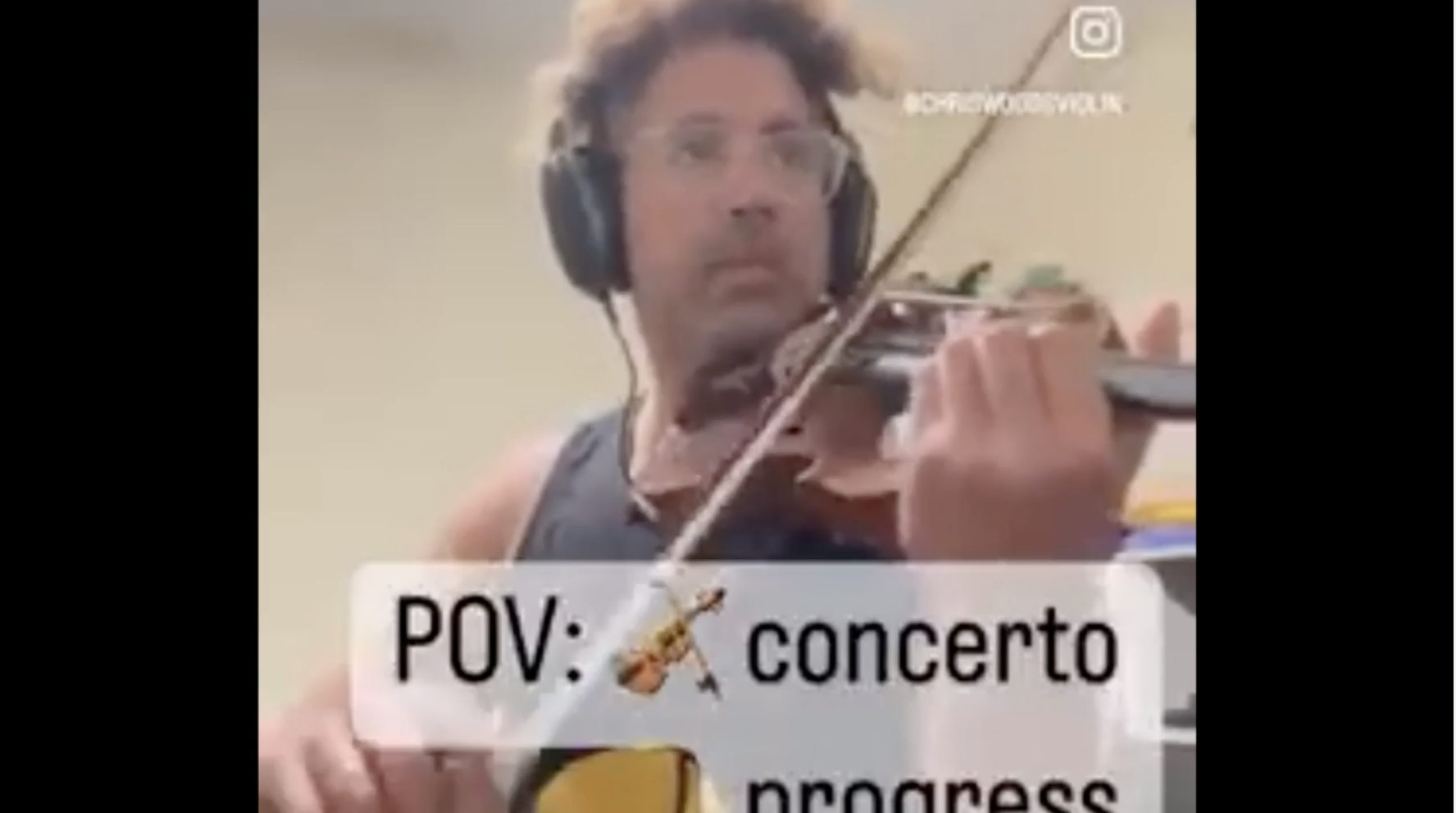O, Le’ Me Shine
February 24
7:30 PM
RCC Coil School of the Arts
Celebrating Black History Month
This concert we celebrate black history month by honoring composers William Dawson and Chris Woods. Both highly talented black composers who’s compositions have levels of complexity, musical messaging and sheer beauty.
Don’t miss this concert, as these memorable pieces will nurture your spirit and soul.
PROGRAM
Chris Woods
Concerto Cinematique
World Premiere
commissioned by Kathy Wright and Dwight Tate
~intermission
William Dawson
Negro Folk Symphony
1st movement: “The Bond of Africa”
2nd movement: “Hope in the Night”
3rd movement: “O, Le’ Me Shine, Shine Like a Morning Star!”
Chris Woods & Concerto Cinematique
Composer and violinist Chris Woods’ piece called Concerto Cinematique will be Premiered this concert. Who else would be able to perform this concerto for solo violin and orchestra better than himself? We asked him to tell us about his composition:
Chris Woods “Concerto Cinematique for me is an exploration into what it means to be human, as well as the journey of self-exploration and striving to find meaning and transcend limitations. In my own personal journey, the composition of this piece started with a vision, a dream. To create something from the heart and soul. To do something meaningful with my creativity.
As I started the composing process in December of 2022 (recording ideas on my violin into my phone) I decided to start documenting the process on my instagram @chriswoodsviolin and Facebook pages (which I am grateful to say eventually led to the commission of the work by the fantastic Riverside Philharmonic and the amazing Tomasz Golka).
The concerto became not only an expression of my deepest thoughts, feelings, and aspirations but also a way for me to inspire others to find meaning through their art and creativity. I started hearing from colleagues and others about how they were motivated to practice or that they loved seeing the “behind the scenes” of my journey.
I was dubbed “Concerto Dad” by Becky Whatley of the Riverside Philharmonic and Tomasz at the donors’ meeting where I talked about my piece, which was an accurate name because throughout this whole process I’ve been raising two toddler boys! My love for my family has been a huge inspiration for me as a composer and I’m inspired to follow my dreams to show my boys and anyone else that follows my journey that we must never let go of our dreams and that determination and the implementation of good habits, healthy living and hard work can lead to a life of fulfillment and purpose.”
What does Black History Month mean to you?
Chris Woods: “Black History Month for me is a time to reflect on my heritage. To acknowledge the struggle of my ancestors and celebrate the men and women that courageously fought for change. To see where we are at and what possibilities lie ahead. As I composed the third movement of my concerto, the main vision I was seeing was of a runaway slave escaping the shackles of a plantation. I also was seeing a different life in the life of Joseph Bologne, Chevalier de Saint-Georges, whose life was popularized in a recent film. These two different lives for me represent different ways of finding freedom, of surviving and even thriving in an unfair system.“
Bio: Chris Woods
Chris Woods has performed around the world and has been featured as a violinist on multiple TV shows such as American Idol, The Voice, The Grammys, and The Oscars. He has performed and recorded with such artists as Lady Gaga, John Legend, Beyonce, Justin Timberlake and Will.I.Am. His string arrangement and playing was featured in Christina Perri’s hit “Jar of Hearts.” He also has played on several movie soundtracks and has been featured numerous times as soloist with orchestra. He is known for his ability to not only play classical music but also other styles and is known for his ability to improvise and give high energy performances. As a composer his works have been performed around the world with groups such as the MASS Ensemble, The Hutchins Consort and Quartetto Fantastico. He recently composed for the “Us” trailer as well as a series of commercials with his quartet. His mission is to encourage people to find their voice through creativity and to celebrate their uniqueness.
Chris Woods about his early life
How long have you been playing your intstrument?
“I started violin at the age of four and am now 48, so 44 years! My parents are both musicians (pianist and violist) so I would hear them practicing from an early age. In some ways I think I learned the language of music before I learned how to speak!”
What is your first memory of a Symphony concert you attended?
“The earliest symphony concert I remember is when I performed the Mozart Violin Concerto no. 3 with the Florence Symphony in South Carolina when I was 12 years old. It was a great opportunity for me. I always loved and still love the music and genius of Mozart, so to have that experience at a young age I’m sure helped to define and inspire me as a musician, performer and composer. “
About: the Negro Folk Symphony
The Negro Folk Symphony is a masterpiece written with passion and skill. This piece has a comparable emotional intensity to pieces composed by Mahler, or Brahms , while adding Gershwin-like jazzy rhythms to create even higher level of musical excitement. The layered musical complexity will leave us on the tip of our seats during the entire performance.
Music Director Tomasz Golka about the piece : “When something comes from the depth of people’s spirits and souls and is then transformed into a high quality work of art, it has the ability to share a powerful message that unites all of humanity. “
Golka continues: “I eagerly await the days when I can look out from the conductor's podium to see an orchestra and audience that is completely multi-racial, with equal parts Black, White, Latino, Native American, Asian, etc. For me this composition by Dawson symbolizes what music should always be about: love.”
“I see the concert experience as a glimpse of utopia: for two hours we can pretend that all there is in our world is beauty, love, and resolved conflicts."
Dawson’s own explanation about the piece, published in the New York times in 1934:
“The composer [William Dawson], now 35, explained his “first Negro Symphony” to a Philadelphia interviewer.
“It is not religious, but classical,” he held, “in the modern idiom. It is melancholy, a type of theme related to jazz in its rhythm. It is an attempt to develop Negro music, something they said again and again could not be developed. I made up my mind four years ago to stop talking myself and let others do the talking. Ever since I have been writing the music.
I have never doubted the possibilities of our music, for I feel that buried in the South is music that somebody, someday, will discover. They will make another great music out of the folksongs of the South. I feel from the bottom of my heart that it will rank one day with the music of Brahms and the Russian composers.”
(citation from the New York times, November 18th, 1934)
The piece was premiered in 1934 by Maestro Leopold Stokowski and the Philadelphia Orchestra in the Carnegie Hall.
To promote the concert the New York Times wrote a piece describing Dawson’s journey to compose the pieces:
“William L. Dawson, who has written this “first Negro symphony” was born in Anniston Alabama, Sept 25 1899. Shining shoes and tending grocery store, he ran away from home when he had saved enough to pay his far to Tuskegee. He is now director of the School of Music there and conductor of the Tuskegee Choir.
Seven years he worked as a barefoot lad on Tuskegee’s 2,500-acre farm, seven more in various divisions of the agricultural department. He learned to play many instruments in the institute band and orchestra, studied piano and harmony, sang in the choir.
He took up composition and orchestration at Washborn College, Topeka, Kansas. In 1921, spending four more year on theory and counterpoint at the Horner Institute of Fine Arts, in Kansas City.
His Master of Arts degree he took at the American Conservatory of Music in Chicago Civic Orchestra, “the first Negro to occupy such a position,” it is said. He got the job because he was the only applicant who could play the alto clef for trombone. “I couldn’t play it either” he himself said, “but Mr. Frederick Stock liked my attempt”
[...]
Praising the new work, Leopold Stokowski said that he was happy to introduce the composition to American audiences because he believed it to be a distinct achievement in American music.
“Dawson has succeeded in portraying that aspect of American life which he has seen and lived and felt most profoundly. It is a work which is both vital and personal.
He has voiced the spirit of his people struggling in a new land; the ancient voice of Africa transferred to America […]“ (citation from the New York times November 18th, 1934)
The world Premiere of Chris Woods’ Concerto Cinematique is commissioned by: Kathy Wright and Dwight Tate
Your support is valuable
Join our superstar sponsors who make it possible for us to share this music.
Whether you are a music loving individual or a business who would like to be seen by hundreds of concert attendees, we have options for you. Please reach out to us to learn more.




